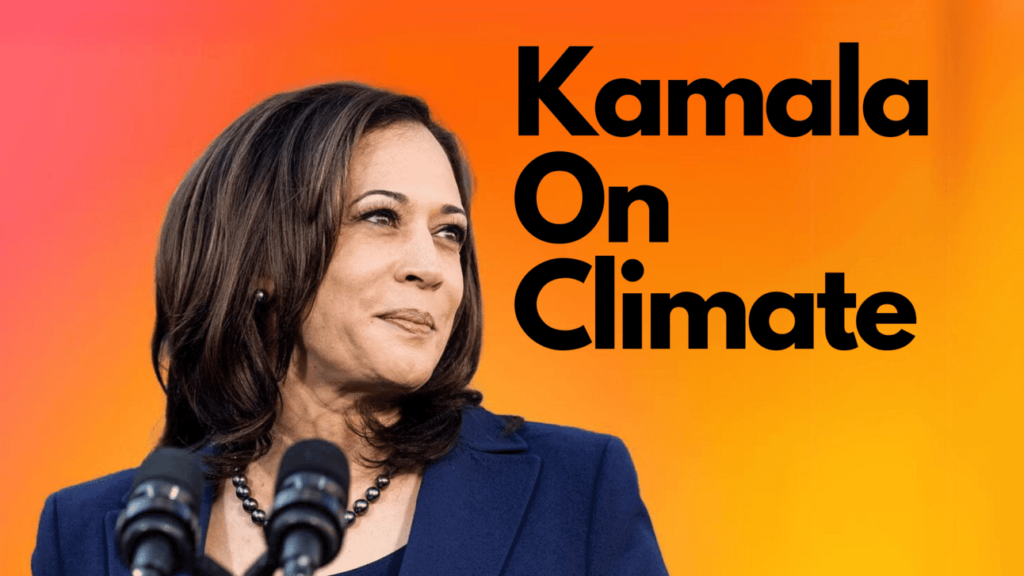Tim Mohin: Kamala on Climate

For more from Tim Mohin, sign up for his newsletter here
An unprecedented political tsunami hit on Sunday when President Joe Biden dropped out of the presidential race. In just a few days, it seems all but certain that the new Democratic Presidential nominee will be Vice President Kamala Harris.
A Harris Administration would inherit a long list of climate policies achieved by the Biden Administration. President Biden often claims he has done more than any President in US history on climate and sustainability.
For example, Biden brought the US back into the Paris Climate Accord – endorsed by nearly all nations in the world. After epic political battles, Congress approved his “Inflation Reduction Act (IRA)” – the largest climate-tech stimulus bill in history. The bi-partisan Infrastructure Act and the Chips Act each have significant climate provisions as well. The impact of all of these policies is still rolling out, while the Biden Administration has moved a list of sustainability regulations that are too long to mention here. Biden’s presidency has been nothing short of transformational for advancing sustainability in the US.
Now, on to Vice President Kamala Harris. Her record makes it very likely that a Harris Administration will continue or even deepen the focus on climate, with a focus on social justice. As far back as 2005, when Harris was Attorney General of San Francisco, she set up an environmental justice unit. The architect of California’s climate law (SB 253), Sen. Scott Wiener, who worked on her campaign for that office, said, “I remember as DA, she was very focused on pollution issues.”
In her time as Attorney General for San Francisco and for California between 2004 and 2017, she took a hard line on oil and gas companies and other polluters, winning tens of millions from BP, Chevron, Volkswagen, and others. She even sued the Obama administration back in 2016 for agreeing to allow fracking off the California coast. She won the case, which led to an injunction on all offshore fracking in the Pacific.
Throughout her time as a US Senator, Presidential Candidate, and Vice President, she has continued her climate advocacy. As a Senator, she was a proponent of the “Green New Deal.” During the Presidential primaries, she pledged $10 trillion to climate neutrality (almost 10x more than Biden’s plan), proposed a carbon tax, and an end to fossil fuel subsidies and fracking. Then, as Vice President, Kamala Harris cast the deciding vote in passing the Inflation Reduction Act and argued in favor of IRA funds being invested in disadvantaged communities.
However, her green credentials will also be her Achilles heel for attacks from the right as she defends her anti-oil and gas record. It’s likely she will temper some of her positions to appeal to a broader voting block, particularly in energy-rich swing states like Pennsylvania. Christopher Borick of Pennsylvania’s Muhlenberg College said, “Kamala Harris will be more open to attack on anti-fracking positions…the issue can have an impact on a key slice of the electorate in a state where presidential elections are won on the margins.”
As the race takes shape, the differences in climate and energy are emerging as a stark dividing line. Eric Beightel, a top Biden administration official, said Donald Trump’s return to the White House would be “catastrophic to our hopes and dreams of our clean energy transition.”
Two things are clear in this fast-moving story: Climate and Energy will be a top issue in the Presidential race, and Biden’s climate legacy hangs in the balance.
Related Article: Tim Mohin: States Making US Climate Reporting Inevitable












